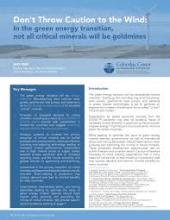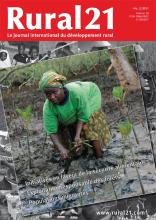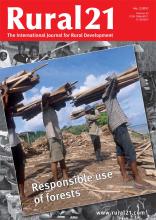Land Library
Welcome to the Land Portal Library. Explore our vast collection of open-access resources (over 74,000) including reports, journal articles, research papers, peer-reviewed publications, legal documents, videos and much more.
/ library resources
Showing items 1 through 9 of 15.This note proves recommendations for governments, international actors, and mining advocates who seek to optimize the value of green energy mineral reserves, to ensure that expectations for green energy materials do not replace careful planning, impact assessment, and allocation of risks, as well
This manual has been developed for training purposes. It models the gas value chain from the upstream project to the use of gas under the form of LPG, LNG or as feedstock for local industrial or power generation uses.
This paper provides guidance on how to integrate consultation and FPIC principles into investor-state contract negotiations to actively involve project-affected communities and better safeguard their land rights and human rights.
The framework provides guidance to policy makers on how to approach the question of shared use.
ELD is a joint initiative of Germany, the European Commission and the United Nations Convention to Combat Desertification (UNCCD). ELD offers a strong platform for raising public awareness of land degradation and advocating sustainable land-use strategies.
Soils around the world are degrading rapidly, reducing ecosystem diversity and some important functions, threatening food and other human securities, and increasing vulnerability to climate change. This is a vicious cycle created by and leading to further unsustainable land-use practices.
Les populations vivant aux alentours d’aires protégées doivent développer de nouveaux moyens de subsistance pour assurer leur survie. Les populations riveraines des forêts dépendent souvent de l’utilisation des produits et services que leur offrent les ressources naturelles.
The Congo Basin Forest Partnership aims to reconcile forest conservation with forest use. This article explains what a “policy network” of this sort can achieve and where its limits lie.
In rural areas of many developing countries fuelwood constitutes the only energy source – often with negative impacts on humans and the environment. Wise management and modern technology can guarantee a sustainable use of this valuable resource, as some examples from Latin America demonstrate.







